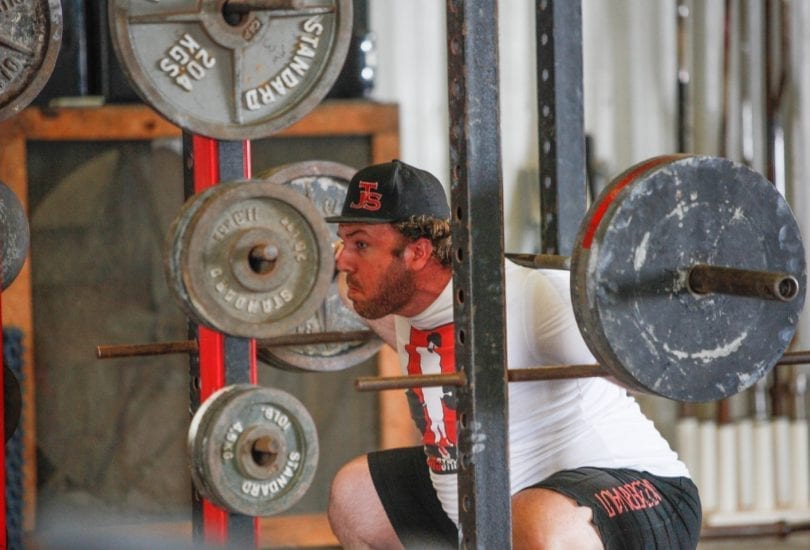Written by Team Juggernaut
We recently got the opportunity to talk training and mental toughness with three D-1 Strength and Conditioning coaches. Questions and answers follow below. This is invaluable information for coaches, especially those who train large groups of athletes, as group chemistry and developing mental toughness for the training required to reach the top are important factors for team success.
1) How can you tell someone’s mentally weak? How can you tell someone’s sandbagging and not just slow/weak/truly fatigued?
Coach Scott Salwasser of UC-Berkeley: Someone who is mentally weak will refuse to extend themselves to the point of being truly fatigued; they are afraid and will always hold something back to stay in a comfortable zone. Those who are mentally tough will at least push themselves to the level of discomfort and fight to the best of their capabilities to keep up. When adversity hits, in whatever form it may take, the mentally weak view it as an acceptable excuse to fail and not compete, and the mentally tough view it as a challenge that will make the accomplishment even more enjoyable.
Coach Donnell Boucher of The Citadel: In my experience, mental toughness, in its most essential form, is the ability to stay fully in the present moment, avoiding any and all distractions, in order to optimize your ability to advance toward your goal. Pain, recent experience, environmental constraints, change, etc., are all forms of distractions. The mentally tough person can successfully deal with any distraction and prepare optimally. I believe this attribute can be observed in someone by assessing their body language, eye contact, adherence to protocols and standards, emotional competency, and lastly, consistency of performance.
Coach Keith Caton of Baylor: It’s hard to tell if someone is truly “mentally weak.” If the athlete is struggling through a workout or even an off-season, the coach needs to look deeper into the situation. Maybe there are circumstances that are affecting them, such as family issues, school, girlfriend/boyfriend trouble, they don’t have enough food at home, they are having problems sleeping, they have a dependency, etc. Everything ties into each other, and if you put two huge stressors on an athlete, it could mean disaster. Fatigue makes a coward of us all!
2) Have you worked with athletes who are mentally weak in the gym, but still beast on the field? In that case, would building more mental toughness in the gym really help, or is it just a matter of them hating training, but loving their sport?
Coach Scott Salwasser: Yes, I believe you are correct; it is a case of loving the sport but hating training. In that case, I would be up front with them and explain that even though they dislike training and can be successful without it, there are many on the team for whom that is not the case and they need to train hard; therefore, since it’s a team sport and your success relies on everyone else, you need to be at minimum compliant so as to not be a negative example to your teammates.
Coach Donnell Boucher: This is an interesting question. Initially, my response was, “Yes: The genetic lottery is a very real thing.” BUT, after a little consideration, I’m not so sure I’m being accurate with that response. I know I’ve seen TALENTED athletes, who are clueless/pitiful in the weight room, but unstoppable on the field. That was not your question, though; there’s no regard to the mental game there. I’m not so sure that I’ve ever seen a mentally weak individual in training who was able to turn it on at practice and in game and exhibit mental toughness on the field. I’d like to point out that it’s easy to confuse talent with mental toughness; we see the individual win something, and we’re influenced to believe it was that person’s resiliency, competitiveness, etc., that won the situation. More often than not, I see mismatches where a genetically gifted or more in-shape individual beat a lesser individual and gets commended for being “mentally tough.” I’m not sure how anybody can witness a singular act and reach that conclusion. To me, mental toughness is a way of living that is demonstrated over time, not in a singular act. As I reflect on the hundreds of athletes I’ve worked with, I’m sold on the idea that a mentally fit individual is that way in most areas, especially those pertaining to their sport. There have been a few athletes I’ve worked with who, after the fact, told me verbatim that they HATED training, and would’ve done nothing but practice year round if they were allowed to. In the end, they invested in training because they believed in our program/staff and trusted that it would help them play better. That is right in-line with my definition of mental toughness. Those same people, who may not have been the strongest, etc., were the most competitive. If I challenged them in the weight room, they responded. If I put them in a pressure situation on the field, they responded. When it came time to lace ’em up, they did the same thing – they responded. The mentally weak people, would never have a response. They were the guys who, in their fifth year, continued making freshman mistakes like wearing the wrong uniform, showing up late, fluctuating body weight, and performing like a roller coaster, etc. The same track record followed them onto the field. This is true, in my mind, to the letter. I think this speaks directly to accountability and the fact that mentally tough people OWN their responsibilities, behavior, and decisions. Any person lacking in this area, regardless of their talent/skill level, only stands to benefit from improving it. I’d argue that this very concept could be applied to, say, an NFL wide receiver who has failed multiple drug tests in his young career. He might argue this point to the end of time, but he’s falling short on the one thing that will probably seal the fate of his pro career: avoiding distractions. If that’s not standing to benefit, I don’t know what is.
Coach Keith Caton: “Mental toughness” begins with confidence – not the cocky attitude that you see some athletes have. That is a false show, and it usually means that they are trying to hide doubts and concerns that they have. Confidence is built over time and is a skill that can be mastered. It is the belief in your processes, faith in your teammates, faith in yourself, faith in your family, and faith in the Lord. Outside influences should not have the power to affect your confidence, but too many times we allow them and doubt to creep in.
Read Developing Mental Toughness-Part 2
Coach Salwasser has worked in the strength and conditioning field for 12 years at the private, collegiate, and NFL levels. He is currently the Assistant Strength and Conditioning Coach at The University of California-Berkeley as well as an accomplished weightlifting competitor.
Coach Donnell Boucher is the Head Strength and Conditioning Coach at The Citadel in Charleston, South Carolina. In his 7 years in this position, Boucher has overseen all of the Bulldogs’ varsity athletic teams.
Coach Keith Caton is the Director of Football for Athletic Performance for the Baylor Bears, a team regarded by many to be the most athletic in all of college football. Coach Caton is also an elite level raw powerlifter in the 242 class.
Related Articles:







